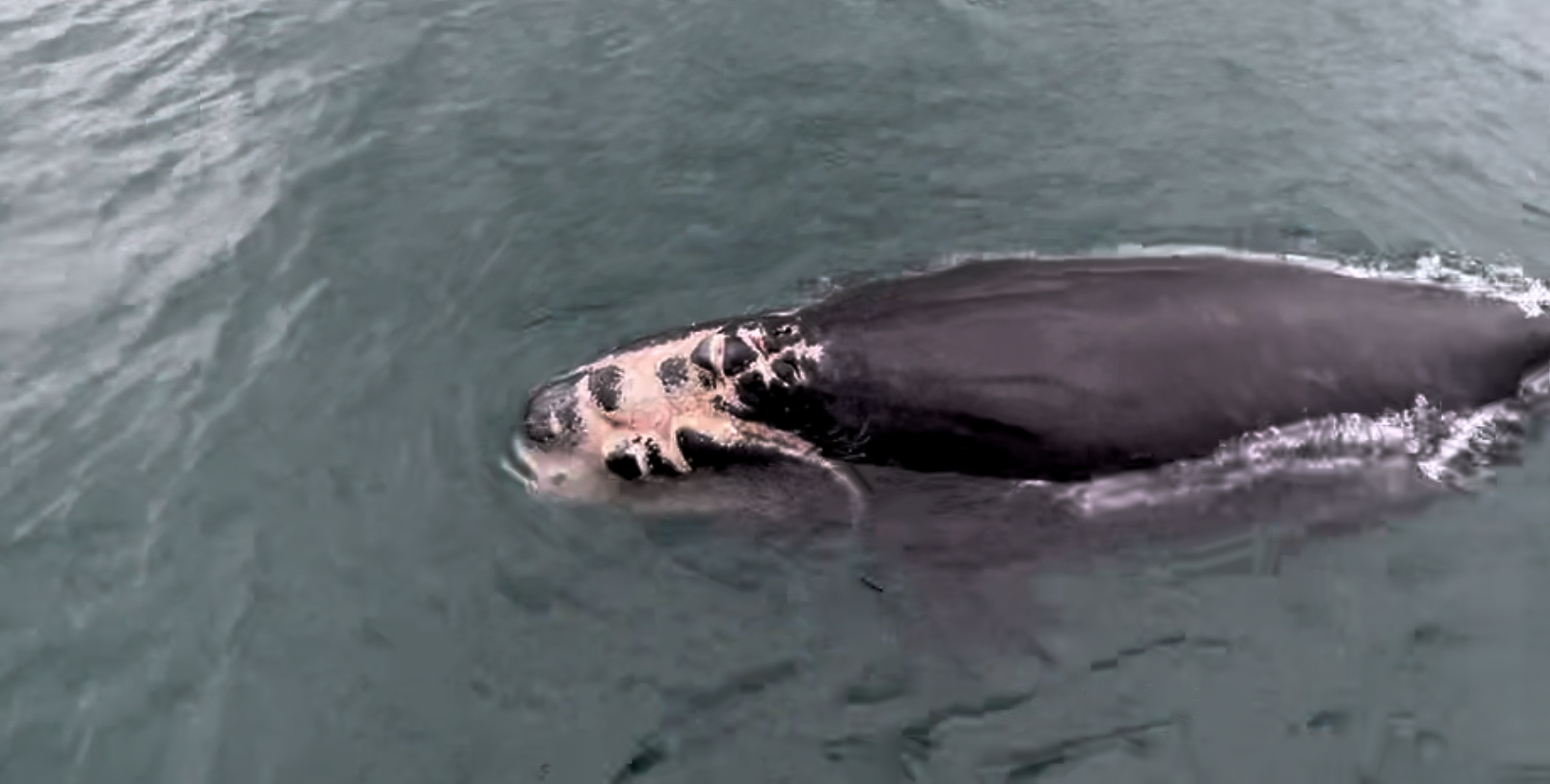
BOSTON, MASS. (Jan. 10, 2024) – The New England Aquarium is reacting to news that a North Atlantic right whale calf, first spotted off the coast of South Carolina in November, suffered a serious injury consistent with a vessel strike.
Images of the newborn calf from January 3 show several propeller wounds on the head, mouth, and left lip. In its release, the National Oceanic and Atmospheric Administration (NOAA) said the whale will likely die as a result of its injury. The calf, the eighth born to mother “Juno” (Catalog #1612), is one of nine documented in the Southeast United States this calving season. The mother-calf pair was first seen on November 28 off Georgetown, South Carolina. Researchers last sighted them healthy on December 9 off Amelia Island, Florida.
This represents the 14th vessel strike in U.S. waters since 2008 that has led to either a mortality or a serious injury from which the whale is not likely to survive. The New England Aquarium assisted in identifying the mother-calf pair and is assessing the calf’s injuries.
“This devastating case brings a heightened sense of urgency to address the significant challenges North Atlantic right whales are facing. It is crucial to act now to implement enhanced regulations to protect this critically endangered species along the U.S. East Coast,” said Amy Knowlton, senior scientist in the Anderson Cabot Center for Ocean Life at the New England Aquarium.
Most vessels over 65 feet long must travel at 10 knots or less in seasonal management areas along the Southeast and mid-Atlantic from November into April. NOAA is currently considering modifications to the existing vessel speed rule to better protect right whales. Proposed changes to the federal vessel speed rule include expanding the size of and time period for areas with seasonal speed restrictions, extending restrictions to most vessels measuring 35 to 65 feet in length, and implementing mandatory speed restrictions in dynamic speed zones, which are established when whales are observed.
The New England Aquarium has contributed the best-available scientific research and analysis to help advance the revised rule, as science-based policies have proven to effectively contribute to the recovery of struggling marine mammal populations.
MEDIA CONTACT: Pam Bechtold Snyder, psnyder@neaq.org; 617-686-5068
